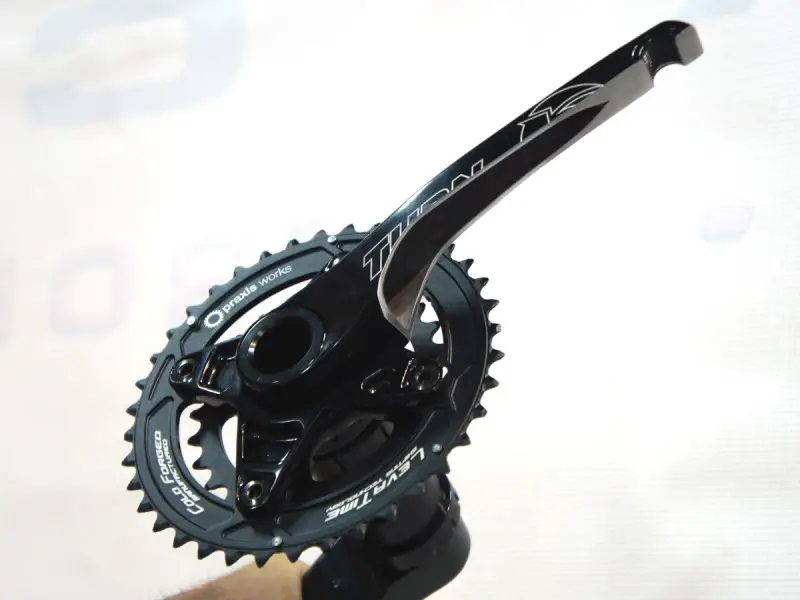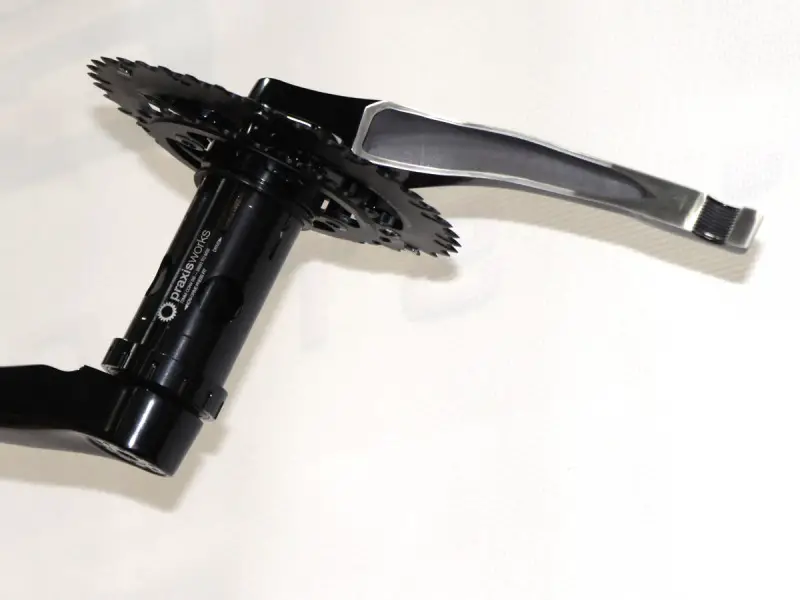Forgery bad, forging good.

After “it comes in 27.5,” “we’re aiming for XT pricing and weight” had to have been the most repeated phrase at Interbike this year. And for good reason: Shimano’s second-tier group is a great benchmark in terms of strength, function, and durability. Of course, the more products match (or even approach) XT’s performance, the better off we’ll all be.
Joining this chorus was chainring company Praxis Works’ component arm Turn. While the company has dabbled in composites in the past, Praxis Works / Turn is closely associated with Taiwanese forging house Dragontech Manufacturing and their shared focus is primarily on metal forming. One of the very few companies forging (rather than stamping or machining) chainrings, Praxis’ chainrings are quickly gaining popularity under their own and private label logos.

Pushed back several times due to lucrative OEM projects and the runaway success of their creak-free expanding bottom bracket for PressFit applications, Praxis Works / Turn is inching closer to market with this nice looking forged crankset. Built around massive hollow forged arms and a similarly large 30mm spindle, the new crankset has XT price and weight as its target- but aims to best Shimano in terms of stiffness.
The cranks’ long spindle allows for large outboard bearings on BSA, BB30, and PF30 frames. Double and triple versions are expected in several lengths, all using Praxis Works’ forged LevaTime chainrings. Citing numerous ongoing projects, Turn was unwilling to promise to a delivery date- we’ll just need to keep our ears to the ground. Praxis Works and Turn products are distributed in the UK by Upgrade Bikes.
Comments (4)
Leave Reply
Post Comment

Is there any preload adjustability on the BB bearings?
Press-fit. Why?
Sillyoldman,
No- as with most sealed cartridge designs, bearing preload cannot be adjusted. Turn/Praxis uses a similar system to Truvativ’s, in which a stepped axle bottoms out against the non-drive side bearing’s inner race. The non-drive arm is then tightened against the far side of the bearing race, in order to keep the arms from impacting bearing performance.
marc
Pimpmaster Jazz,
Praxis Works are aiming to *solve* the creaky press-fit issue- not encouraging it. As to “why,” the simple answers are weight and cost: straight, cylindrical bottom brackets are easier (so cheaper) than threaded BBs to build and lighter because less material is needed. A press-fit interface has been accepted for years in headsets- but BBs aren’t being held to the necessary tolerances for whatever reason, which has been causing issues. (Poorly machined English BBs are problematic too.)
Marc